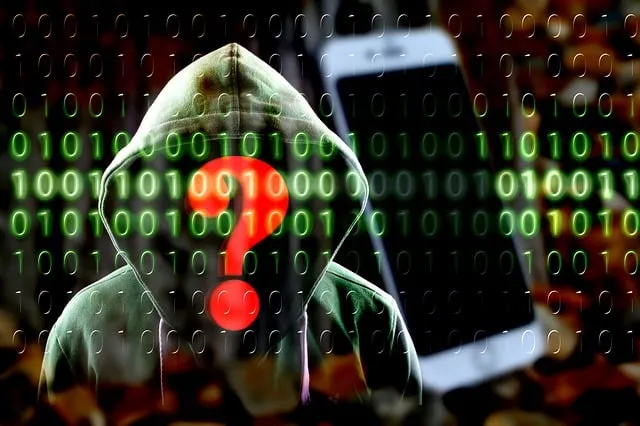| Previous
Page |
PCLinuxOS
Magazine |
PCLinuxOS |
Article List |
Disclaimer |
Next Page |
ICYMI: Beware Of Malware That Take Over Legitimate Apps On Android |
|
by Paul Arnote (parnote)
 Image by Mike from Pixabay Have you ever used SSH on your computer, but maybe forgot your SSH keys? If you're not sure how to view your SSH certificates, this article from TechRepublic walks you through the steps on Linux, as well as MacOS and Windows. More than a century since the Titanic sank on its maiden voyage, this first-person testimony of survivor Frank Prentice remains a powerful and harrowing account of the sheer terror felt by those on board, according to an article from BBC. Frank Prentice was 23 when he survived the sinking of the Titanic. When interviewed by the BBC 67 years later, it was clear he was still haunted by that terrible night. More than 1,500 people died when the Titanic struck an iceberg in the Atlantic Ocean on 14 April 1912, causing the boat to sink. While mass layoffs at large tech companies dominated the headlines throughout 2023, a new report suggests that they actually represented a minority, according to an article from the TechRepublic. The “2024 State of Tech Talent Report” from the Linux Foundation revealed that just 29% of organizations reduced their technical headcount last year.  Image by Gerd Altmann from Pixabay You may know — and be on the lookout for — malware hiding in programs that act legitimate, but aren't. But what happens when apps that are legitimate are unwittingly taken over by malicious users, intent on hijacking their programs? It's precisely the situation this article from Lifehacker takes a look at. That's exactly what happened to a group of apps on Android: Microsoft first alerted the world to the issue, called “Dirty Stream,” which is a vulnerability that allows malicious apps to take over legitimate ones. Dirty Stream relies on a flaw in ContentProvider, the system that allows different apps to share the same data set. Without it, apps wouldn't be able to communicate with each other or use the same data, reducing functionality and convenience. Rrrriiiiiiipppppppp! Have you ever wondered how Velcro came about? This article from New York Magazine demystifies its origins. In 1941, de Mestral was on a hunting trip and noticed that both his pants and his Irish Pointer's hair were covered in the burs from a burdock plant. Where many might have brushed them off in irritation, de Mestral decided to study the burs under a microscope, more out of curiosity than sensing a new business opportunity. “He was not a guy who was inspired by business,” says Velcro CEO Cameron. “He was inspired by science. If you need to know how something works, sometimes you just need to know. However he was constructed, he just really needed to know.” What de Mestral saw were thousands of tiny hooks that efficiently bound themselves to nearly any fabric (or dog hair) that passed by. De Mestral realized that if he could create a synthetic form of this fabric, it would allow for a new way to fasten things, a middle ground between buttons, zippers, and simply sewing stuff together. His idea was to take the hooks he had seen in the burs and combine them with simple loops of fabric. The tiny hooks would catch in the loops, and things would just, well, come together. Google appears to be stepping up the fight against spam in Gmail, according to an article from TechRepublic. Starting in early 2024, Google tightened three enforcement efforts in the organization's ongoing fight against spam. First, bulk senders of email must authenticate email with domain-related email settings to ensure each email is actually from the sender specified. Second, large senders of email must offer a one-click unsubscribe option and process the request within two days, so people don't experience absurdly long delays or complicated opt-out processes when they unsubscribe. Third, Google will enforce a spam rate threshold, so people who send too many messages that recipients report as spam will be much less likely to reach your inbox. Image by Gerd Altmann from Pixabay An article from Lifehacker explains how to block companies from tracking you online. Did you know that services like TikTok and Facebook can track you, even if you don't have an account with them? Through ads and deals, data brokers are able to hide cookies, scripts, and “tracking pixels” on completely unrelated sites and even emails, which they can then use to find out your purchase history and other valuable data. And the perpetrators include more than TikTok—Meta is perhaps the most well-known, going so far as to publicize how it scrapes your data. OpenAI and Microsoft are facing another lawsuit over the use of copyrighted material, according to an article from Information Week. Earlier this year, the New York Times sued the two GenAI powerhouses over the use of its articles to train their large language models (LLMs). Now, eight other newspapers have sued OpenAI and Microsoft for the use of copyrighted material. “This lawsuit arises from Defendants purloining millions of the Publishers' copyrighted articles without permission and without payment to fuel the commercialization of their generative artificial intelligence (“GenAI”) products, including ChatGPT and Copilot,” according to the complaint (PDF). From the “No DUH!” department, a NIH official finally admits taxpayers funded gain-of-function research in Wuhan — after years of denials, according to an article from the New York Post. At long last, National Institutes of Health (NIH) principal deputy director Lawrence Tabak admitted to Congress Thursday that US taxpayers funded gain-of-function research at the Wuhan Institute of Virology in China in the months and years before the COVID-19 pandemic.  Image by Tumisu from Pixabay Microsoft wants laptop users to get so comfortable with its artificial intelligence chatbot that it will remember everything you're doing on your computer and help figure out what you want to do next, according to an article from Fortune. The software giant on Monday revealed a new class of AI-imbued personal computers as it confronts heightened competition from Big Tech rivals in pitching generative AI technology that can compose documents, make images and serve as a lifelike personal assistant at work or home. Move along, there's nothing to see here. I'm sure that NOTHING bad will happen from this [/sarcasm]. It sounds a lot like spyware to me! Facing an antitrust jury trial over claims it monopolizes online advertising, Google has chosen to do the most logical thing it can think of to avoid the case being heard by a jury: It's cut a check to the US Justice Department to get prosecutors to strike their damages claim, according to an article from The Register. According to a federal court filing (PDF) in Virginia last week, Google said it has offered the DoJ a check for an unspecified sum that covers “the full monetary damages it seeks.” By doing so, Google said it has solved the DoJ's claims for damages, and thus Uncle Sam's reason for asking for a jury trial. Sure … just buy your way out of trouble, Google! Attention, Chrome users: It's time to update your browser, says an article from Lifehacker. Google dropped an update in mid-May for Chrome on Windows, Mac, and Linux, and while that “Update” button in the corner of your browser window can be all too easy to ignore, you really shouldn't. Chrome 125 includes patches for nine security vulnerabilities. While all security flaws are important to fix as soon as possible, one of the vulnerabilities in particular is of the most concern: This flaw is tracked as CVE-2024-4947, a “Type Confusion in V8,” which occurs when a piece of code doesn't verify the object it's being passed to. In other words, the wrong functions end up attached to the wrong code, which bad actors can take advantage of to potentially run their own code on your device.  Image by GraphicMama-team from Pixabay We take the search function [on your PC] for granted — when it goes well. If you search for a particular email, photo, or document on your PC, and it pops right up, you don't think twice about it. But if you spend 10 minutes scouring your hard drive looking for that one file, you lose your mind. That's where Microsoft hopes its new Recall feature can help — even if it comes with some major security risks, according to an article from Lifehacker. Did you know that you can use your Kindle ebook reader for more than reading ebooks? Few do, and that is the reason for the article from Lifehacker. While Amazon has a dedicated “Send To Kindle” program, there are multiple ways to wirelessly send reading material to your Kindle. The Kindle devices support .DOC, .DOCX, .HTML, .TXT, .PDF and .EPUB file formats. Most of us around here “cut our teeth” on Microsoft Windows. With that, came a “reliance” on programs written in Visual Basic, otherwise known as VB. Well, Microsoft announced today that it will start deprecating VBScript in the second half of 2024 by making it an on-demand feature until it's completely removed, according to an article from BleepingComputer.  Image by Sanjeevi 777 from Pixabay Earlier this month, NASA proved that it's getting serious about its investment into nuclear-powered rockets by moving a fission-based plasma rocket known as the pulse plasma rocket into Phase II funding under the NIAC program, according to an article from Popular Mechanics. This rocket could cut astronaut travel times to Mars down to just two months, or significantly increase payloads for resupply missions—both of which will be crucial for NASA's future Martian plans. Google parent Alphabet's potential acquisition of HubSpot, a U.S. marketing software maker with a market value of $31 billion, would boost its ability to compete against Microsoft in offering cloud-based applications to companies, according to an article from Reuters. HubSpot, which makes marketing software for small and medium-sized businesses, is seeking ways to maintain sales growth in the face of a wider economic slowdown. For many users with an adblocker employed, YouTube videos are suddenly starting to skip to the end of the video, according to an article from 9to5 Google. Over the past few months, YouTube has been enforcing its rule against the use of adblockers. That started last year with the platform displaying a message that would tell the user to turn off their ad blocking, in turn blocking videos from playing after that prompt was ignored. That led to many uninstalling their adblockers, as well as some clever workarounds popping up.  A new rearview camera for bikes uses AI to keep cyclists safe, according to an article from Global Cycling Network. The camera sends audible and visual warnings to a rider's phone when a car gets close to them. An Irish company, Luna Systems, is aiming to harness the power of AI in the name of cycling safety through a new rear-viewing camera for cyclists. The initiative is set to launch at the beginning of June, Luna Systems' new Luna Oculus camera is designed to shoot rear-viewing footage as a cyclist rides which is relayed to an app on a cyclist's phone, in what sounds like a similar design to a dash cam. That would appear to partly be the inspiration, at least judging by the company's mission “to empower cyclists with the kinds of safety technologies already deployed in modern cars.” However, far from a simple recording device, the camera detects when a car is getting close to the rider and sends both visual and auditory warning signals to an app on a phone. Riders get to choose at what point these alerts are triggered through customisable “warning zones”, which Luna Systems says can be adjusted according to a riders' “own level of comfort”. Currently, according to a demo video released by the company, these alerts will be in the form of a beeping noise and a red light on the screen, although it says the interface will change when the product is officially launched. According to an article from the BBC, Internet access and use is consistently associated with positive wellbeing, a new study of data from 168 countries by the Oxford Internet Institute (OII) suggests. In many parts of the world, including the EU and UK, concerns about online harms have prompted new laws. The OII says some of its findings are “consistent” with reported links between social media use and depressive symptoms among young women. But it concludes the overall benefits of being online show regulators contemplating tougher laws should rely on data and not be “guided by anecdote.” The Google Play Store begins highlighting apps that let you delete your account, according to an article from Android Authority. This makes it easy to request data or account deletion without needing to reinstall an uninstalled app. Google has mandated apps that create user accounts to also allow for account and data deletion within the app and through the web. The enforcement deadline for app developers is May 31, 2024, so it should be in place by the time you read this. Ahead of the deadline, the “Account deletion available” badge is now live in the Google Play Store within app listings. It highlights how you can request that your data or account be deleted. This makes it easy to easily delete app accounts and data without needing to reinstall an uninstalled app. |







